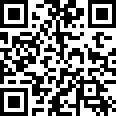OARS—a set of verbal and non-verbal communication skills that helps clinicians and educators in primary care practices to engage and build rapport with patients and assess their needs. --Source
- OPEN-ENDED QUESTIONS
- Open-ended questions ask for more information, a further explanation that requires a longer discussion of the situation. It is the opposite of questions that elicit only “yes” or “no” answers.
- Tell me more about…
- Can you say a little bit more about…
- What was …..like?
- What else?
- Say more about…
- Open-ended questions ask for more information, a further explanation that requires a longer discussion of the situation. It is the opposite of questions that elicit only “yes” or “no” answers.
- AFFIRMATIONS
- Affirmations are statements that show appreciation or understanding of a person’s situation or experience. They are not compliments – they are observations of ability, decision, or realization. This must be completely sincere without any tinge of irony or sarcasm.
- That sounds like….
- That must have been…
- The steps you are taking show a great deal of …
- It took a lot of strength to…
- It appears that you are going through …
- It must have taken a lot of work to…
- Use any of the following words that might fit
-
brave self-control kindness painful genuine generous dilemma honorable betrayal restraint indignity hard work obstacles hurdles character will power concern willingness sensitivity strength pressure inspirational abuse authentic patience
-
- Affirmations are statements that show appreciation or understanding of a person’s situation or experience. They are not compliments – they are observations of ability, decision, or realization. This must be completely sincere without any tinge of irony or sarcasm.
- Simple REFLECTIONS
- Reflections are statements that show the person you are listening, understanding while also asking for more information or corroboration.
- To the statement, “I don’t need a job right now.”
- A simple reflection is: So what I hear you saying is you’re okay without any employment right now.
- SUMMARIZATIONS
- Summarization is pulling all the current information into perspective so you know you both are on the same page, with understanding that the information exchanged is correct. Check it out.
- So what we’ve been talking about is…Am I on the right track?
- So my understanding of what you’ve been describing is… Is that right?
- Summarization is pulling all the current information into perspective so you know you both are on the same page, with understanding that the information exchanged is correct. Check it out.
Also available as a PDF Handout: Download as PDF [202 KB]
